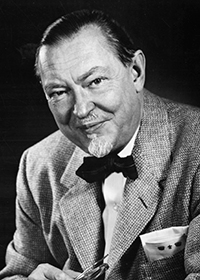Pulitzer Prizes
Prizes of History
A total of 13 members of the University community have won the Pulitzer Prize since the awards were established in 1917.
Can you match the winners and the works for which they won?

2012: This graduate won the prize in music for the opera Silent Night: Opera in Two Acts, which had its premiere in November 2011.
Correct: Puts is now a faculty member in composition at the Peabody Institute of Johns Hopkins University. The director of the Minnesota Orchestra Composer’s Institute, Puts was commissioned by the Baltimore Symphony Orchestra and by Carnegie Hall to compose a new orchestral work, The City, which will be premiered in Baltimore and New York in April.
Incorrect. Try again.

2004: A longtime professor of history at the University of Pennsylvania, this graduate won the prize in history for the book A Nation Under Our Feet: Black Political Struggles in the Rural South from Slavery to the Great Migration.
Correct: Hahn is the Roy F. and Jeanette P. Nichols Professor of History at the University of Pennsylvania, where he specializes in the history of 19th-century America, African-American history, the history of the American South, and the international history of slavery and emancipation.
Incorrect. Try again.
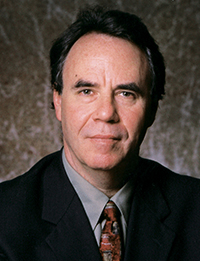
1996: This graduate won the prize for music for the composition Lilacs for Voice and Orchestra.
Correct: With compositions that have been performed by virtually every major orchestra in the United States, Walker is a widely regarded musician, composer, and educator. He has been a member of the faculty at Dillard University, the New School, Smith College, the Peabody Institute, the University of Delaware, and Rutgers University, where he retired as chair of the music department.
Incorrect. Try again.

1993: The work Trombone Concerto won the prize when this composer was a member of the faculty.
Correct: Rouse was a member of the composition faculty at the Eastman School of Music from 1981 until 2002 and is now on the faculty at the Juilliard School.
Incorrect. Try again.

1983: Considered a towering figure in post–WWII poetry, this graduate won the prize for the book Selected Poems.
Correct: Kinnell, who also won the National Book Award for Selected Poems had a long and influential career as a poet, scholar, and champion of the literary arts. He died in 2014.
Incorrect. Try again.
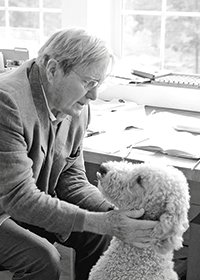
1979: A member of the faculty when he won the prize, this composer was cited for the composition Aftertones of Infinity, which was first performed by the American Composers Orchestra in Alice Tully Hall New York City.
Correct: Schwantner, who taught at the Eastman School of Music from 1970 until 2001, has also taught at Yale Unviersity and the Juilliard School. Widely recognized as a composer, he was elected as a member of the American Academy of Arts and Letters in 2002.
Incorrect. Try again.
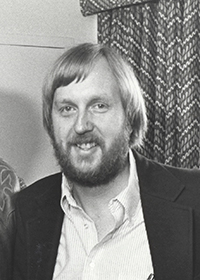
1975: This graduate won the prize in music for the song cycle From the Diary of Virginia Woolf.
Correct: Considered one of the nation’s leading composers of lyric opera, Argento holds the title of Regents Professor Emeritus at the University of Minnesota, where he taught at the school of music for nearly 40 years.
Incorrect. Try again.
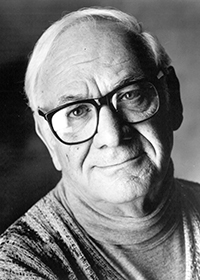
1968: Considered one of the leading poets of the 20th century, this poet had just joined the faculty when the collection The Hard Hours won the prize in poetry.
Correct: A member of the English department faculty for 18 years, Hecht was the John H. Deane Professor of Rhetoric and Poetry at the University. He also served in the position of Consultant in Poetry to the Library of Congress (a position later known as Poet Laureate of the United States). He died in 2004.
Incorrect. Try again.

1962: This graduate won the award for music for the opera The Crucible, which was based on the stage drama by Arthur Miller.
Correct: Over the course of his career, Ward received some of the highest honors available to a composer, including a New York Music Critics Circle Citation, three Guggenheim Fellowships, and the National Endowment for the Arts Opera Honor. He died in 2013.
Incorrect. Try again.
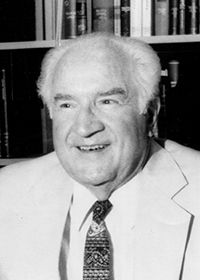
1960: This graduate won the prize in drama for Fiorello!, a musical based on the life of former New York City Mayor Fiorello La Guardia.
Correct: In a career that spanned more than nine decades, Abbott was a theater producer and director, playwright, screenwriter, as well as a film director and producer. George Abbott Way in New York City’s Times Square is named in his honor.
Incorrect. Try again.

1959: This graduate won the prize in music for Concerto No. 1 (for piano and orchestra), In Time of War, which was first performed by the National Symphony Orchestra in 1958.
Correct: La Montaine was commissioned to write the first piece of music specifically for a presidential inauguration; his overture From Sea to Shining Sea opened John F. Kennedy’s inauguration in 1961. He died in 2013.
Incorrect. Try again.

1952: This graduate won the prize in music for Symphony Concertante, which was first performed at New York City’s Town Hall.
Correct: Kubik, who had a long career as a composer of film music as well as classic works, died in 1984.
Incorrect. Try again.

1944: This composer was leading the Eastman School of Music when Symphony No. 4. Opus 34 won the prize in music.
Correct: Hanson served as director of the Eastman School of Music from 1924 to 1964. A longtime advocate for developing American classical music, he also was the first director of an institute—now known as the Hanson Institute for American Music—to promote the commissioning, recording, performance, study, and preservation of works of American composers.
Incorrect. Try again.
